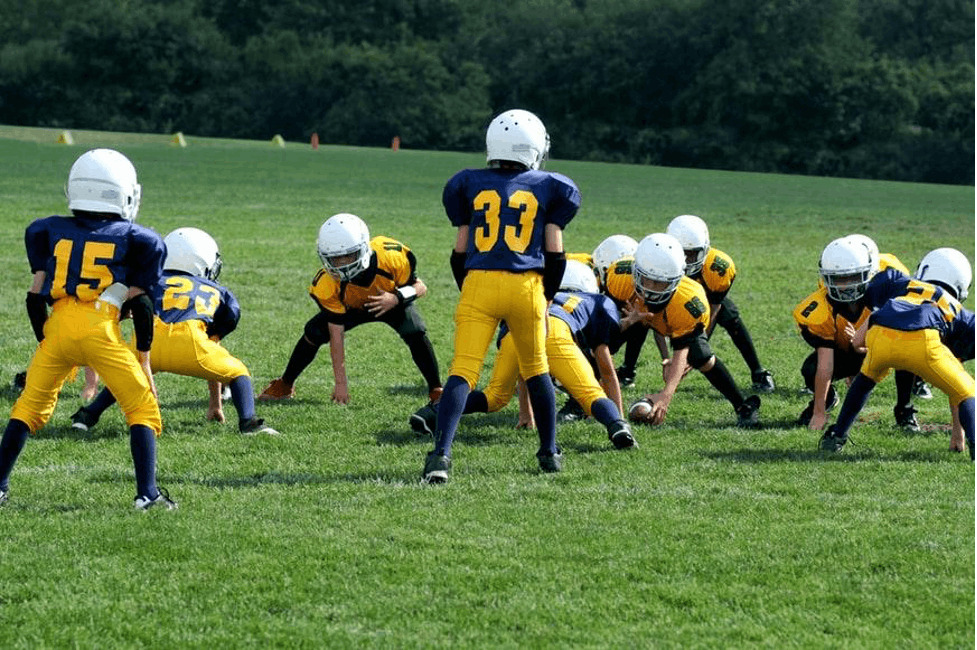In order to be the best of the best, athletes need to find their internal motivation. This is integral to their ability to overcome challenges and obstacles that are sure to emerge in their athletic journey. Not only that, but it's the unwavering motivation that keeps athletes working drills after dark. This unmatched level of motivation is almost always present in the athletes we consider legendary, heroes even. Michael Jordan is a great example of this internal motivation that was more powerful than anything else. Jordan actually never made his high school basketball team. However, he spent night-after-night practicing free throws. The story is he would shoot 100 free throws every night. Eventually, this paid off, and he became one of the all time greats to ever touch the hardwood courts of the NBA.
This same internal motivation that drove Micahel Jordan to rise to the challenge and make his mark as one of the all-time-greats, can still be found in young athletes today. These are a few strategies that coaches, parents, and trainers can rely on in order to motivate young aspiring athletes.
Positive Reinforcement and Encouragement
First and foremost, positive reinforcement and encouragement are extremely important in the context of learning any skill or talent. This same theory applies to the world of sports. Humans thrive on positive reinforcement and encouraging behavior. As such, it's important to be happy and acknowledge a job well done on the court or the field. This helps reinforce strong muscle memory in the athlete, and also makes their job more fun.
Positive reinforcement can take any number of shapes in the world of sports but is very helpful in rewarding athletes mentally and emotionally for performing well. On the flip side of this, there is also a way to deliver constructive criticism and feedback that is still encouraging.
Rather than losing your cool with young aspiring athletes, it's much more helpful to identify the issue, explain the solution, and then work with the athlete on implementing that solution into their technique. By taking the time to engage in this process, the athlete doesn't only feel like they're doing well and improving, they actually learn additional skills that make them better at the game.
Celebrating Wins Together
Another important part in encouraging and motivating young aspiring athletes is the celebration. Sports are games, and games are meant to be fun. Especially when you win! This is part of the reason that celebrating wins together, as a family, team, or member of the athletic organization is integral to reinforcing athletic participation and keeping young athletes motivated. While youth sports should really be all about having fun, learning the game, and socializing it's undeniable that winning simply feels good. Whether it's a championship match, an entire tournament, or just the first win of the season, these are all well worth celebrating for young athletes.
Besides, winning with humility and grace is also a valuable skill that young athletes can take away from these moments.
Learning From the Losses
On the other side of things, it's also extremely important to help young athletes learn from the losses. While a loss never feels good, especially for young and budding stars who have lofty athletic aspirations, there are very important lessons that can be learned.
This is both in reference to learning about the actual nature of the game itself and the strategy involved, to learning about emotional maturity and how to overcome adversity.
Greg Oden's net worth is a testament to learning from the losses in life, and moving on ahead anyway.
Engaging in Professional Sports
Another great way for young athletes to find and hold onto motivation is through engaging in professional sports. Watching professional sports, staying up to date with the professional athletes in any specific game, and even listening to analysis and breakdowns of old game tapes. All of this can inspire a young athlete to keep training harder and harder so they one day play on the same field of the athletes they idolize today.
Professional sports are also easy for a whole family to engage in together.
Discussing the Game
When it comes to learning and mastering a sport, it can be helpful to discuss the game in detail. By learning more about the game yourself, you can engage in helpful and informational conversations about game-play-strategy, decision-making, and even the professional level of the sport.
Having someone with which they can share their passion reinforces, encourages, and motivates young athletes to continually train.
Wrapping up on Young Athlete Motivation
Motivation can be both internal and external. While you may not be able to impact the internal motivation of young athletes, you can certainly be a positive influence in their external environment. By implementing some of the strategies above, you can help young athletes acquire and maintain a passion for the sport they play.
This post is provided by a third party who may receive compensation from the products or services they mention.

